- Home
- Brian Lumley
Necroscope n-1 Page 2
Necroscope n-1 Read online
Page 2
Inching his chair forward again, his eyes spied something in the back of the open drawer. A Browning 9mm automatic. He’d known Gormley carried a weapon but hadn’t known about this one. But would the gun be loaded, and if it was would it be any good against this?
‘No,’ said the naked apparition with a slow, almost imperceptible shake of its head. ‘No it wouldn’t.’ Which was all the more surprising because its lips didn’t move by the smallest fraction of an inch!
‘Jesus Christ!’ Kyle gasped again, out loud this time, as he once more gave an involuntary start away from the desk. And then, controlling himself, to himself, he said:
You … you read my mind!
The apparition smiled a thin smile. ‘We all have our talents, Alec. You have yours and I have mine.’
Kyle’s lower jaw, already agape, now fell open. He wondered which would be easier: to simply think at the thing or to talk to it.
‘Just talk to me,’ said the other. ‘I think that will be easier for both of us.’
Kyle gulped, tried to say something, gulped again and finally gasped out: ‘But who… what… what the hell are you?’
‘Who I am doesn’t matter. What I have been and will be does. Now listen, I’ve a lot to tell you and it’s all rather important. It will take some time, hours maybe. Do you need anything before I begin?’
Kyle stared hard at the… whatever it was. He stared at it, jerked his eyes away from it, peered at it out of the corner of his eye. It was still there. He surrendered to instinct backed up by at least two of his five senses, those of sight and hearing. The thing seemed rational; it existed; it wanted to talk to him. Why him and why now? Doubtless he’d shortly be finding out. But — God damn! — he wanted to talk to it, too. He had a real live ghost here, or a real dead one!
‘Need anything?’ he shakily repeated the other’s question.
‘You were going to light a cigarette,’ the apparition pointed out. ‘You might also like to take your coat off, get yourself a coffee.’ It shrugged. ‘If you do these things first, then we can get on with it.’
The central heating had come on, turning itself up a notch to compensate for the sudden fall in temperature. Kyle carefully stood up, took off his overcoat and folded it over the back of his chair. ‘Coffee,’ he said. ‘Yes — er, I’ll just be a moment.’
He walked round the desk and past his visitor. It turned to watch him leave the room, a pale shadow of a thing floating there, skinny, insubstantial as a snowflake, a puff of smoke. And yet…oh, yes, there was a power in it. Kyle was thankful it didn’t follow him…
He put two five-pence pieces in the coffee machine in the main office, fumbling the coins into the slot, and headed for the gents’ toilet before the machine could deliver. He quickly relieved himself, picked up his steaming paper cup of coffee on the way back to Gormley’s office. The thing was still there, waiting for him. He carefully walked round it, seated himself again at the desk.
And as he lit a cigarette he looked at his visitor more closely, in greater detail. This was something he had to get fixed in his mind.
Taking into account the fact that its feet weren’t quite touching the floor, it must be about five-ten in height. If its flesh was real instead of milky mist, it — or he — would weigh maybe nine stone. Everything about him was vaguely luminous, as if shining with some faint inner light, so Kyle couldn’t be sure about colouring. His hair, an untidy mop, seemed sandy. Faint and irregular marks on his high cheeks and forehead might be freckles. He would be, oh, maybe twenty-five years old; he had looked younger at first but that effect was wearing off now.
His eyes were interesting. They looked atKyle and yet seemed to look right through him, as if he were the ghost and not the other way about. They were blue, those eyes — that startlingly colourless blue which always looks so unnatural, so that you think the owner must be wearing lenses. But more than that, there was that in those eyes which said they knew more than any twenty-five-year-old had any right knowing. The wisdom of ages seemed locked in them, the knowledge of centuries lay just beneath the faintly blue film which covered them.
Apart from that, his features were fine, like porcelain and seeming equally fragile; his hands were slim, tapering; his shoulders drooped a little; his skin in general, apart from the freckles of his face, was pale and unblemished. But for the eyes, you probably wouldn’t look at him twice on the street. He was just… a young man. Or a young ghost. Or maybe a very old one.
‘No,’ said the object of Kyle’s scrutiny, his lips immo bile, ‘I’m not any kind of ghost. Not in the classic sense of the word, anyway. But now, since you obviously accept me, can we begin?’
‘Begin? Er, of course!’ Kyle suddenly felt like laughing, hysterical as a schoolgirl. He controlled it with an effort.
‘Are you sure you’re ready?’
‘Yes, yes. Go right ahead. But — er — can I record this? For posterity or whatever, you know? There’s a tape recorder here, and I — ‘
‘The machine won’t hear me,’ said the other, shaking his head again. ‘Sorry, but I’m only speaking to you — directly to you. I thought you understood that? But… take notes if you wish.’
‘Notes, yes…’ Kyle scrabbled in the desk drawers, found paper and a pencil. ‘Fine, I’m ready.’
The other slowly nodded. ‘The story I have to tell is… strange. But working in an organisation such as yours, you shouldn’t find it too unbelievable. If you do… there’ll be plenty for you to do afterwards; the truth of the things I’m going to tell you will come out then. As to any doubts you may have about the future of your branch — put them aside. Your work will go on, and it will go from strength to strength. Gormley was the head, but he’s dead. Now you will be head — for a little while. You’ll be up to it, I assure you. Anyway, nothing that Gormley knew has been lost; indeed, much has been gained. As for the Opposition — they’ve suffered losses from which they may never recover. At least, they’re about to.’
As the apparition spoke, so Kyle’s eyes opened even wider and he sat up straighter and straighter. It (he, dammit!) knew about the branch. About Gormley. About ‘the Opposition’, which was branch parlance for the Russian outfit. And what was this about them suffering heavy losses? Kyle knew nothing of that! Where did this — being — get its information? And just how much did it know anyway?
‘I know more than you can possibly imagine,’ said the other, smiling wanly. ‘And what I don’t know I can get to know — almost anything.’
‘See,’ said Kyle defensively, ‘it’s not that I doubt any of this — or even my sanity, for that matter — it’s just that I’m trying to adjust, and — ‘
‘I understand,’ the other cut him off. ‘But, please, do your adjusting as we go, if you can. In what I’m about to tell you, time-zones may overlap a little, so you’ll need to adjust to that, too. But I’ll keep it as chronologically sound as I can. The important thing is the information itself. And its implications.’
‘I’m not sure I quite under — ‘
‘I know, I know. So just sit there and listen, and then maybe you will understand.’
Chapter One. Moscow, May 1971
Central in a densely wooded tract of land not far out of the city — where the Serpukhov road passed through a saddle between low hills and gazed for a moment across the tops of close-grown pines towards Podolsk, which showed as a hazy smudge on the southern horizon, brightly pricked here and. there with the first lights of evening — stood a house or mansion of debased heritage and mixed architectural antecedents. Several of its wings were of modern brick upon old stone foundations, while others were of cheap breeze blocks roughly painted over in green and grey, almost as if to camouflage their ill-matching construction. Bedded at their bases in steeply gabled end walls, twin towers or minarets decayed as rotten fangs and gaunt as watchtowers — whose sagging buttresses and parapets and flaking spiral decorations detracted nothing from a sense of dereliction — raised broken bulbous domes high
over the tallest trees, their boarded windows glooming like hooded eyes.
The layout of the outbuildings, many of which had been recently re-roofed with modern red brick tiles, might well suggest a farm or farming community, though no crops, farm animals or machines were anywhere in evidence. The high all-encompassing perimeter wall — which from its massy structure, reinforced abutments and broad breast walls might likewise be a relic of feudal times — showed similar signs of recent repair work, where heavy grey concrete blocks had replaced crumbling stone and ancient brick. To east and west where streams ran deep and gurgling over black boulders, flowing between steep banks which formed them into natural moats, old stone bridges supporting lead roofs green with moss and age tunnelled into and through the walls, their dark mouths muzzled with steel-latticed gates.
All in all grim and foreboding. As if the merest glimpse of the place from the highway would not be sufficient warning in itself, a sign at the T-junction where a cobbled track wound away from the road and into the woods declared that this entire area was ‘Property of the State’, patrolled and protected, and that all trespassers would be prosecuted. Motorists were not permitted to stop under any circumstances; walking in the woods was strictly forbidden; hunting and fishing likewise. Penalties would be, without exception, severe.
But for all that the place seemed deserted and lost in its own miasma of desolation, as evening grew into night and a mist came up from the streams to turn the ground to milk, so lights flickered into life behind the curtained ground-floor windows, telling a different story. In the woods, on the approach roads to the covered bridges, large black saloon cars might also appear abandoned where they blocked the way — except for the dull orange glowing of hot cigarette tips within, and the smoke curling from partly wound-down windows. It was the same inside the grounds: squat, silent shapes which might just re present men, standing in the shadowed places, their dark grey overcoats as like as uniforms, faces hidden under the brims of felt hats, shoulders robotically square…
In an inner courtyard of the main building, an ambu lance — or maybe a hearse — stood with its back doors open, white-overalled attendants waiting and the driver seated uncomfortably at the high steering-wheel. One of the attendants played with a steel loading roller, spinning it on well-lubricated bearings at the rear end of the long, somehow sinister vehicle. Nearby, in an open-ended barnlike structure with a sagging canvas roof, a helicopter’s dull paintwork and square glass windows gleamed darkly in shadow, its fuselage bearing the insignia of the Supreme Soviet. In one of the towers, leaning carefully on a low parapet wall, a figure with Army night-sight binoculars scanned the land about, particularly the open area between the perimeter wall and the central cluster. Pro jecting above his shoulder, the ugly blue metal snout of a specially adapted Kalashnikov rifle was limned faintly against a horizon growing steadily darker.
Inside the main building, modern soundproof partition walls now divided what had once been a vast hall into fairly large rooms, serviced by a central corridor lit with a row of fluorescent tubes strung along a high ceiling. Each room had a padlocked door and all the doors were fitted with tiny grille windows with sliding covers on the inside, and with small red lights which, when blinking, signified ‘No Entry — Not to be Disturbed’. One of these lights, half-way down the corridor on the left, was blinking even now. Leaning against the wall to one side of the door with the blinking light, a tall, hard-faced KGB operative cradled a submachine-gun in his arms. For the moment relaxed, he was ready to spring to attention — or into action — at a moment’s notice. The merest hint of the door opening, the sudden cessation of the red light’s blinking, and he would snap up straighter than a lamppost. For while none of the men in that room was his real master, nevertheless one of them was as powerful as anyone in the highest ranks of the KGB, perhaps one of the ten most powerful men in Russia.
There were other men in the room beyond the door, which in fact was not one room but two, with an inter connecting door of their own. In the smaller room, three men sat in armchairs, smoking, their hooded eyes fixed on the partition wall, of which a large central section, floor to ceiling, was a one-way viewscreen. The floor was carpeted; a small wheeled table within easy reach supported an ashtray, glasses, and a bottle of high-class slivovitz; all was silent except for the breathing of the three and the faint electric whirr of the air-conditioning. Subdued lighting in a false ceiling was soothing to their eyes.
The man in the middle was in his mid-sixties, those to right and left perhaps fifteen years younger. His protégé‘s, each of them knew the other for a rival. The man in the middle knew it, too. He had planned it that way. It was called survival of the fittest; only one of them would survive to take his place, when eventually that day came. By then the other would have been removed — perhaps politically, but more likely in some other, still more devious fashion. The years between would be their proving ground. Yes, survival of the fittest.
Completely grey at the temples, but with a broad contrasting central stripe of jet-black hair swept back from his high, much-wrinkled brow, the senior man sipped his brandy, motioned with his cigarette. The man on his left passed the ashtray; half of the hot ash found its target, the rest fell to the floor. In a moment or two the carpet began to smoulder and a curl of acrid smoke rose up. The flanking men sat still, deliberately ignoring the burning. They knew how the older man hated fussers and fidgets. But at last their boss sniffed, glanced down at the floor from beneath bushy black eyebrows, ground his shoe into the carpet, to and fro, until the smouldering patch was extinguished.
Beyond the screen, preparations of a sort had been in progress. In the Western World it might be said that a man had been ‘psyching himself up’. His method had been simple… startlingly simple in the light of what was about to occur: he had cleansed himself. He had stripped naked and bathed, minutely and laboriously soaping and scrubbing every square inch of his body. He Iliad shaved himself, removing all surface hair from his person with the exception of the close-cropped hair of his head. He had defecated before and after his bath, on the second occasion doubly ensuring his cleanliness by washing his parts again in hot water and towelling himself dry. And then, still completely naked, he had rested. His method of resting would have seemed macabre in |he extreme to anyone not in the know, but it was all part ||of the preparations. He had gone to sit beside the second occupant of the room where he lay upon a not quite I horizontal table or trolley with a fluted aluminium surface, I |and had lain his head on his folded arms where he rested them upon the other’s abdomen. Then he had closed his eyes and, apparently, had slept for some fifteen minutes. There was nothing erotic in it, nothing remotely homosexual. The man on the trolley was also naked, much older than the first, flabby, wrinkled, and bald but for a fringe of grey hair at his temples. He was also very dead; but even in death his pallid, puffy face, thin mouth and dense grey inward-slanting eyebrows were cruel.
All of this the three on the other side of the screen had watched, and all had been accomplished with a sort of clinical detachment and with no outward indication of awareness from the — performer? — that they were there at all. He had simply ‘forgotten’ their presence; his work was all-engrossing, too important to admit of outside agencies or interference’s.
But now he stirred, lifted his head, blinked his eyes twice and slowly stood up. All was now in order, the inquiry could commence.
The three watchers leaned forward a little in their armchairs, automatically controlled their breathing, centred all their attention on the naked man. It was as if they feared to disturb something, and this despite the fact that their observation cell was completely insulated, soundproof as a vacuum.
Now the naked man turned the trolley carrying the corpse until its lower end, where the clay-cold feet pro jected a little way and made a ‘V, overhung the lip of the bath. He drew forward a second, more conventional trolley-table and opened the leather case which lay upon it, displaying scalpels, scissors, saws �
�� a whole range of razor-sharp surgical instruments.
In the observation cell, the man in the centre allowed himself a grim smile which his subordinates missed as they eased back fractionally in their chairs, satisfied now that they were about to see nothing more spectacular than a rather bizarre autopsy. Their boss could barely contain the chuckle rising from his chest, the tremor of ghoulish amusement welling in his stocky body, as he anticipated the shock they had coming to them. He had seen all of this before, but they had not. And this, too, would serve as a test of sorts.
Now the naked man took up a long chromium-plated rod, needle sharp at one end and bedded in a wooden handle at the other, and without pause leaned over the corpse, placed the point of the needle in the crater of the swollen belly’s navel and applied his weight to the handle. The rod slid home in dead flesh and the distended gut vented gasses accumulated in the four days since death had occurred, hissing up into the naked man’s face.
‘Audio!’ snapped the observer in the middle, causing the men flanking him to start in their chairs. His gruff voice was so deep in its range as to be little more than a series of glottal gurgles as he continued: ‘Quickly, I want to listen!’ And he waggled a stubby finger at a speaker on the wall.
Gulping audibly, the man on his right stood up, stepped to the speaker, pressed a button marked ‘Receive’. There was momentary static, then a clear hiss fading away as the belly of the corpse in the other room slowly settled; down in folds of fat. But while yet the gas escaped, instead of drawing back, the naked man lowered his face, closed his eyes and inhaled deeply, filling his lungs!
With his eyes glued to the one-way screen, fumbling and clumsy, the official found his chair again and seated himself heavily. His mouth, like that of his opposite number, had fallen open; both men now perched themselves on the front edges of their chairs, their backs ramrod straight, hands gripping the wooden arm rests. A cigarette, forgotten, toppled into the ashtray on the table to send up fresh streamers of perfumed smoke. Only the watcher in the middle seemed unmoved, and he was as much interested in the expressions on the faces of his subordinates as he was in the weird ritual taking place beyond the screen.

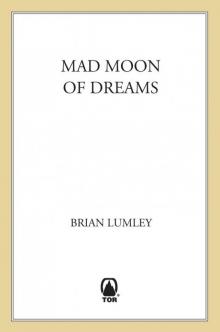 Mad Moon of Dreams
Mad Moon of Dreams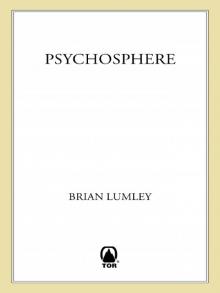 Psychosphere
Psychosphere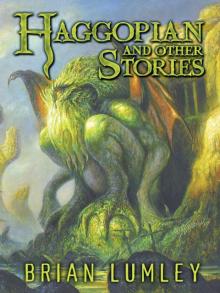 Haggopian and Other Stories
Haggopian and Other Stories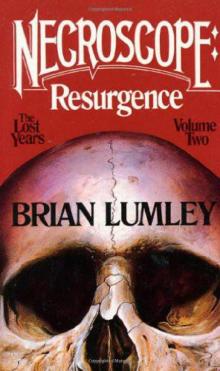 Resurgence_The Lost Years_Volume Two
Resurgence_The Lost Years_Volume Two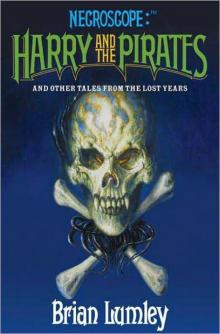 Necroscope: Harry and the Pirates: And Other Tales From the Lost Years
Necroscope: Harry and the Pirates: And Other Tales From the Lost Years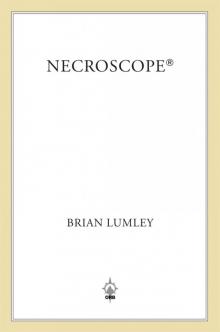 Necroscope®
Necroscope®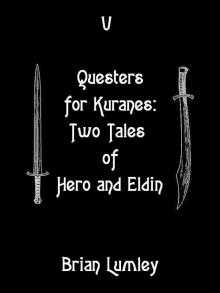 Dreamlands 5: Questers for Kuranes: Two Tales of Hero and Eldin
Dreamlands 5: Questers for Kuranes: Two Tales of Hero and Eldin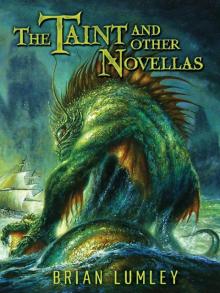 The Taint and Other Novellas: Best Mythos Tales Volume 1
The Taint and Other Novellas: Best Mythos Tales Volume 1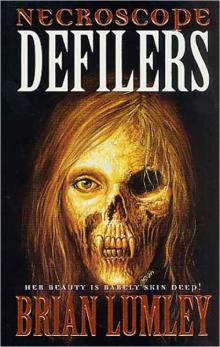 Necroscope: Defilers
Necroscope: Defilers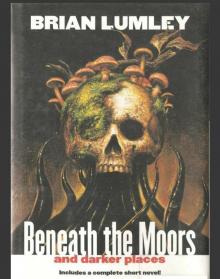 Beneath the Moors and Darker Places
Beneath the Moors and Darker Places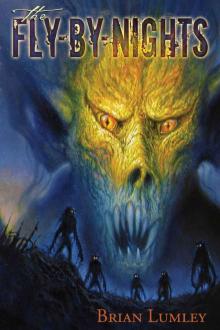 The Fly-By-Nights
The Fly-By-Nights Khai of Khem
Khai of Khem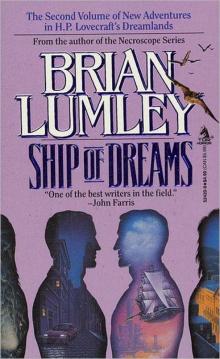 Ship of Dreams
Ship of Dreams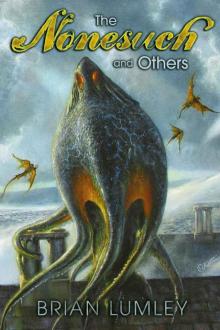 The Nonesuch and Others
The Nonesuch and Others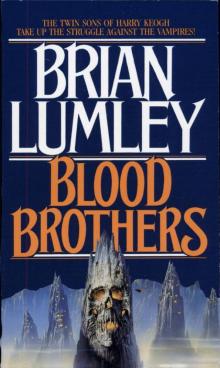 Blood Brothers
Blood Brothers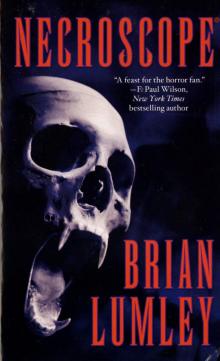 Necroscope
Necroscope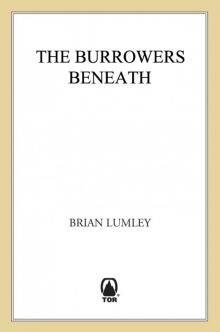 The Burrowers Beneath
The Burrowers Beneath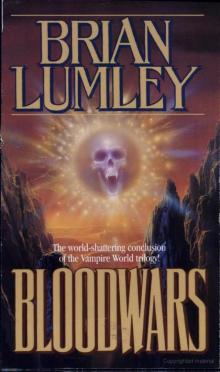 Bloodwars
Bloodwars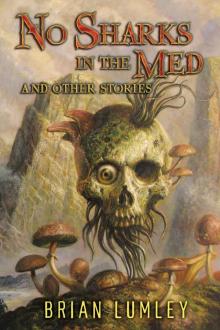 No Sharks in the Med and Other Stories
No Sharks in the Med and Other Stories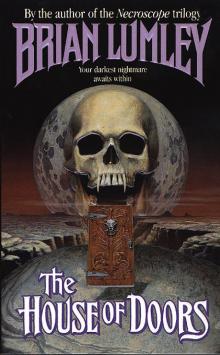 The House of Doors - 01
The House of Doors - 01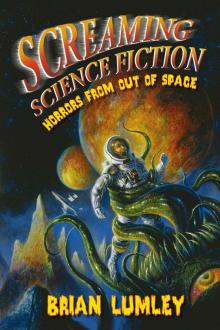 Screaming Science Fiction
Screaming Science Fiction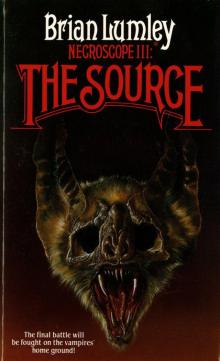 Necroscope III: The Source
Necroscope III: The Source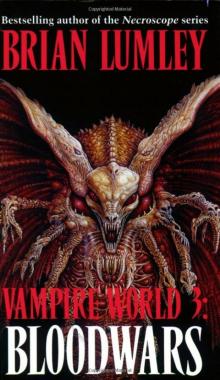 Vampire World I: Blood Brothers
Vampire World I: Blood Brothers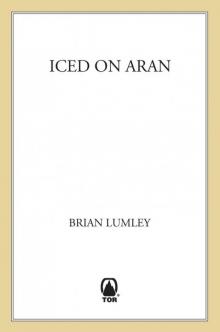 Iced on Aran
Iced on Aran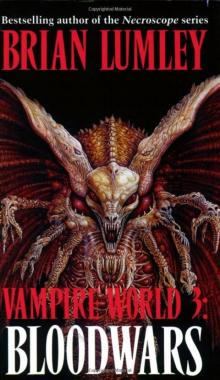 Necroscope: Invaders
Necroscope: Invaders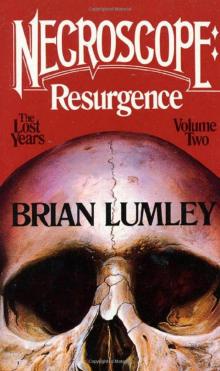 Necroscope: The Lost Years
Necroscope: The Lost Years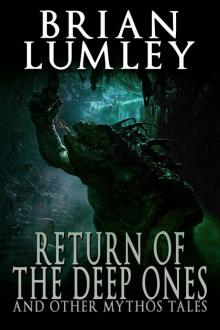 Return of the Deep Ones: And Other Mythos Tales
Return of the Deep Ones: And Other Mythos Tales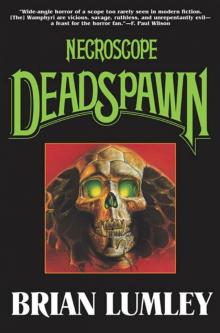 Necroscope V: Deadspawn
Necroscope V: Deadspawn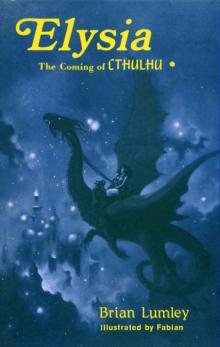 Titus Crow, Volume 3: In the Moons of Borea, Elysia
Titus Crow, Volume 3: In the Moons of Borea, Elysia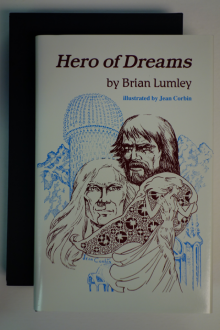 Hero of Dreams
Hero of Dreams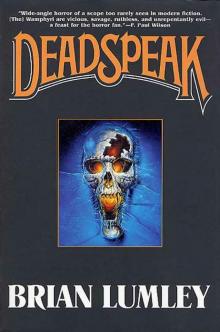 Necroscope IV: Deadspeak
Necroscope IV: Deadspeak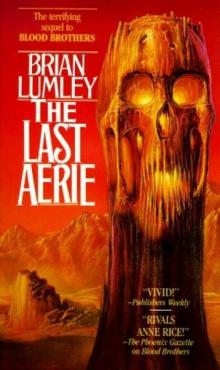 The Last Aerie
The Last Aerie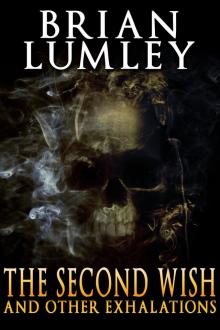 The Second Wish and Other Exhalations
The Second Wish and Other Exhalations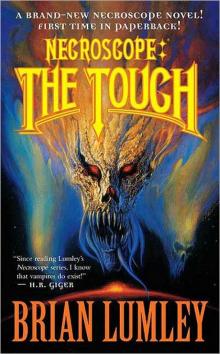 Necroscope: The Touch
Necroscope: The Touch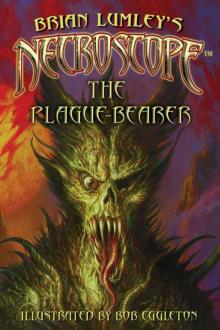 Necroscope: The Plague-Bearer
Necroscope: The Plague-Bearer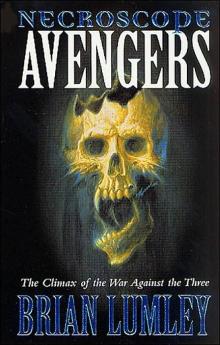 Necroscope: Avengers
Necroscope: Avengers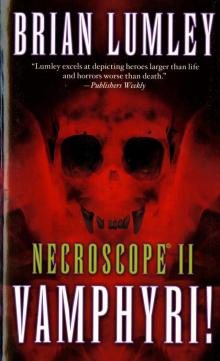 Necroscope II: Wamphyri
Necroscope II: Wamphyri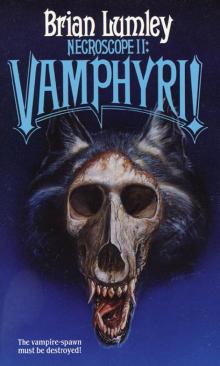 Necroscope II_Vamphyri!
Necroscope II_Vamphyri!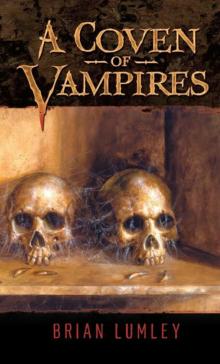 A Coven of Vampires
A Coven of Vampires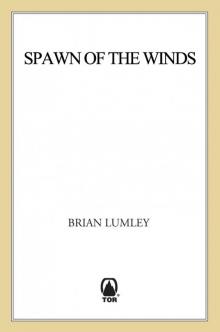 Spawn of the Winds
Spawn of the Winds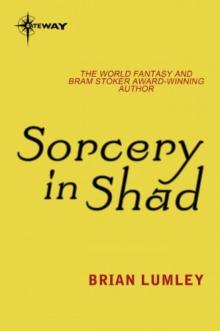 Sorcery in Shad
Sorcery in Shad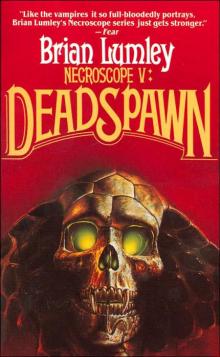 Deadspawn
Deadspawn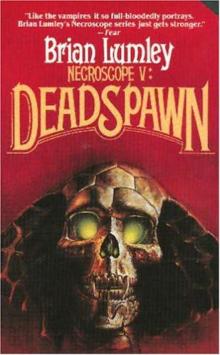 Necroscope V: Deadspawn n-5
Necroscope V: Deadspawn n-5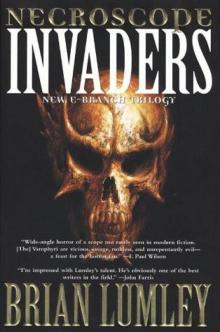 Necroscope: Invaders e-1
Necroscope: Invaders e-1![Beneath the Moors and Darker Places [SSC] Read online](http://i1.bookreadfree.com/i/03/20/beneath_the_moors_and_darker_places_ssc_preview.jpg) Beneath the Moors and Darker Places [SSC]
Beneath the Moors and Darker Places [SSC]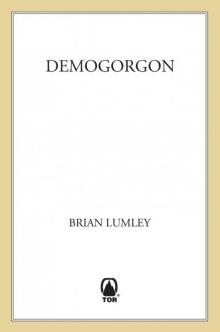 Demogorgon
Demogorgon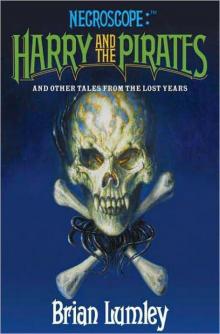 Harry and the Pirates_and Other Tales from the Lost Years
Harry and the Pirates_and Other Tales from the Lost Years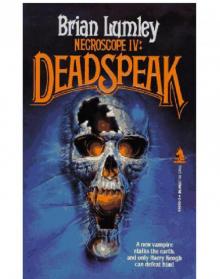 Necroscope IV: Deadspeak n-4
Necroscope IV: Deadspeak n-4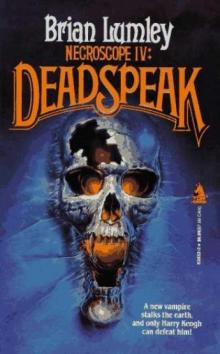 Deadspeak
Deadspeak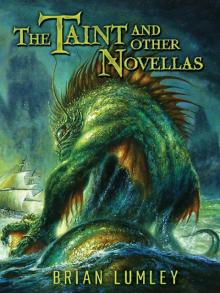 The Taint and Other Novellas
The Taint and Other Novellas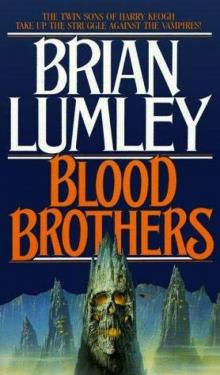 Blood Brothers vw-1
Blood Brothers vw-1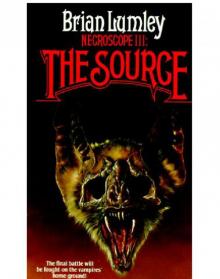 The Source n-3
The Source n-3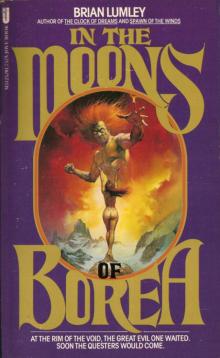 In the Moons of Borea
In the Moons of Borea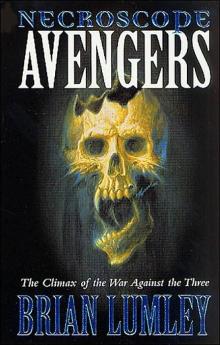 Avengers
Avengers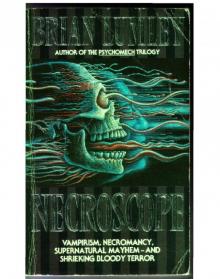 Necroscope n-1
Necroscope n-1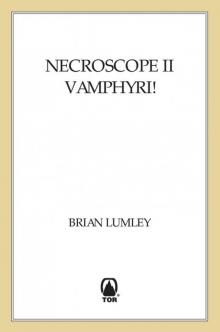 Vamphyri!
Vamphyri!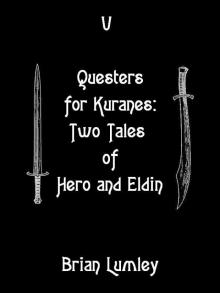 Questers for Kuranes: Two Tales of Hero and Eldin
Questers for Kuranes: Two Tales of Hero and Eldin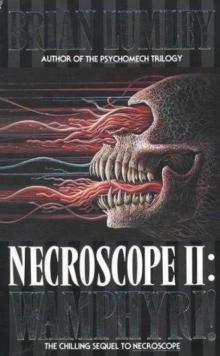 Necroscope II: Wamphyri! n-2
Necroscope II: Wamphyri! n-2 The Source
The Source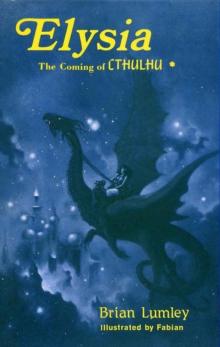 Elysia
Elysia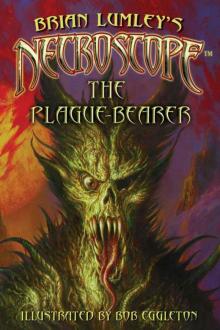 The Plague-Bearer
The Plague-Bearer The Touch
The Touch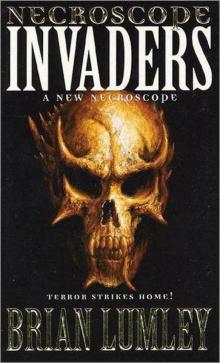 Invaders
Invaders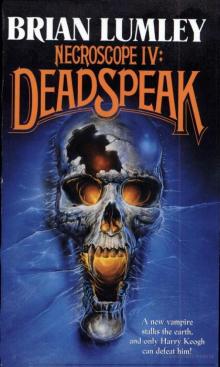 Necroscope 4: Deadspeak
Necroscope 4: Deadspeak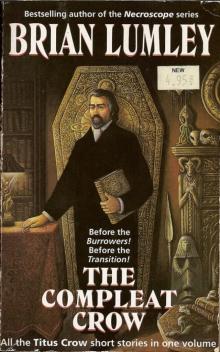 Compleat Crow
Compleat Crow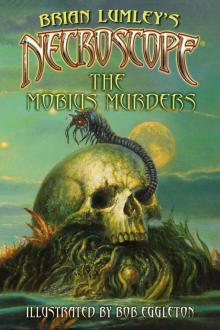 The Mobius Murders
The Mobius Murders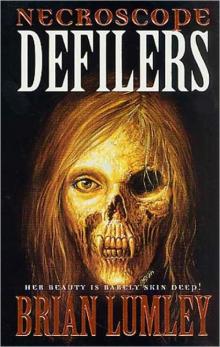 Defilers
Defilers